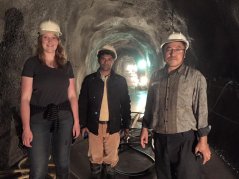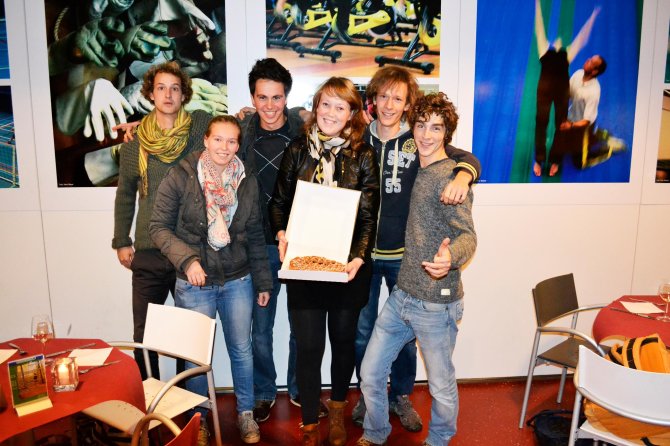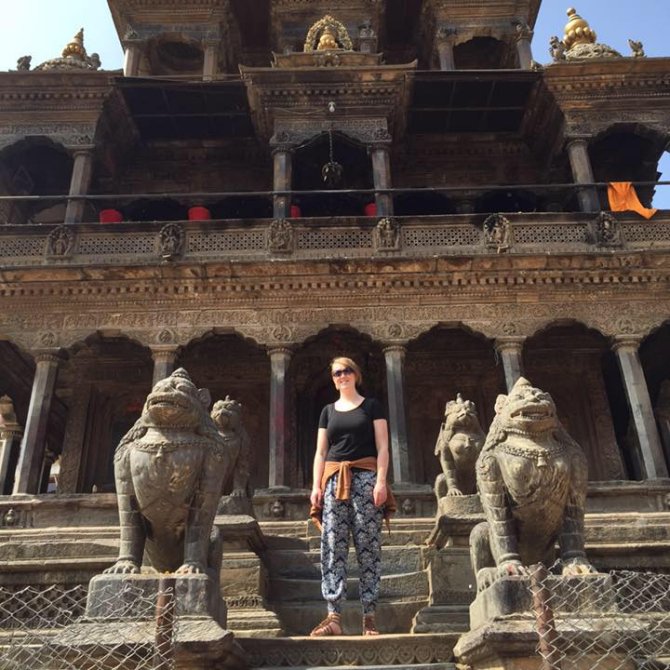
Alumnus testimonial
Manon - Energy transition and sustainability expert
After finishing her master's on Climate studies at Wageningen University, Manon was offered a job as a Social Engineer in a green energy consultancy where she did her MSc internship. Now she works as an energy transition and sustainability expert at the municipality of Montferland.
From the MSc Climate Studies I learned a lot about climate change and aspects like participation and communication. My studies therefore resulted into a solid foundation that I can still fall back on today.
Since you graduated from WUR, what kind of jobs did you have? And what is your current job?
"During my master's I always thought that consultancy would be a good fit for me, so I did my MSc internship at a Greenvis Energy Solutions: a consultancy that specialises in engineering and developing collective renewable heating systems. After my internship, I was offered a job as a Social Engineer. As a Social Engineer, I worked on projects that enhanced the acceptance and general knowledge of renewable heating solutions (both collective and individual systems).
Since a lot of my projects at Greenvis were commissioned by municipalities I was curious what it would be like to work at a municipality. An opportunity came by and I started working for the municipality Montferland in the field of the energy transition and sustainability. Because this was a part-time job I combined it with another consultancy job at ZON Transitie Support, also as a Social Engineer. Quite quickly I concluded that working at the municipality Montferland really energised me and it resulted in a full-time job that I am still enjoying a lot today."
Is this what you always wanted to do in your professional life? Or what has changed?
"A few years ago I did not imagine myself working at a municipality, but more likely at a consultancy. However, I found that the commercial factor does not attract me at all. What I really like about my current job at the municipality is the diversity of projects that I work on plus the different people that I work with.
I feel like I am working at the centre of the energy transition where I have to work for/with policymakers (Alderman of Sustainability, College of Mayor & Aldermen, Municipal council), citizens, regional colleagues, companies/organisations, colleagues from Communication/Spatial Planning/Education, developers, etc. I am not sure if there is an English expression for it, but in Dutch, I always say I feel like a 'spider in the web'."
What are your future goals?
"Currently, I am still learning so much from my job: not a day is the same. I feel like the next few years I can develop some of my skills and knowledge even further. After that: who knows what the future holds."
How do you contribute to a better world? What role did studying in Wageningen have to achieve this?
"Even before I started studying Environmental Sciences (BSc) I was already interested in climate change and the energy transition. That interest grew further during my studies at Wageningen and there was no doubt that I wanted to work in the field of renewable energy. I wanted to work on the mitigation side of climate change rather than the adaptation side.
From MSc Climate Studies, I learned a lot about climate change and aspects like participation and communication. My studies, therefore, resulted in a solid foundation that I can still fall back on today. For example, to stimulate people or companies to save energy or produce renewable energy it is important to (sometimes) repeat the whole story regarding why the energy transition is needed. Sometimes I tell it myself, but one time we even arranged the Dutch famous weatherman Gerrit Hiemstra (who used to live in the municipality Montferland) to tell citizens about climate change."

What choices did you make that helped you get where you are right now?
"I followed the Environmental Policy track and was very enthusiastic about the courses, especially regarding communication and participation. Often the energy transition is about technical solutions, but in my opinion, the main challenge is how to explain to people why we need these solutions, how they work, what it implies for somebody’s home.
Proudly I can say that I was a board member of the study association Aktief Slip; first as secretary, then as president. Here I could practice skills like how to write clear minutes that capture the highlights and conclusions of a meeting and later on how to chair meetings. Later on, I deliberately started to guide tours at the Forum and Orion building and on the WUR campus because I wanted to improve my presentation skills. Working as a tour guide was a lot of fun; it made my presentations more natural and I became way less nervous beforehand. Nowadays I really enjoy presenting to people.

Finally, I learned a lot from my MSc thesis about gaining public acceptance in the development of small-scale hydropower in East Nepal. It was an amazing opportunity for which I travelled to Nepal for 2 months and visited several hydropower plants to collect my data."
